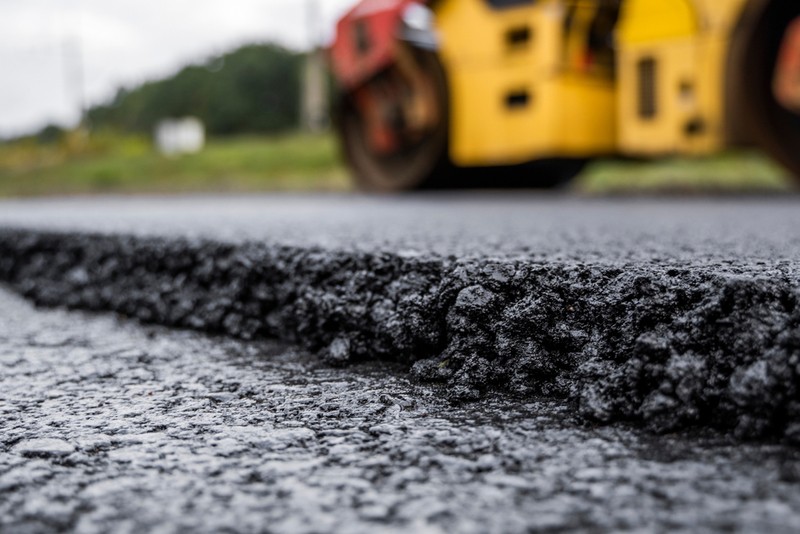Effective Asphalt Repair: Cold Mix Sealing Techniques Unveiled
Effective Asphalt Repair: Cold Mix Sealing Techniques Unveiled
Blog Article
Cold Mix Asphalt Vs. Hot Mix Asphalt: Which Is Right for You?

Composition Distinctions
Cold mix and hot mix asphalts vary substantially in their composition, with distinct features that influence their performance and applications. Cold mix asphalt is generated by emulsifying the asphalt binder with water and an emulsifying representative before blending it with aggregate. This method permits the asphalt to be workable at reduced temperatures, making it optimal for momentary repair services and for usage in cooler weather. Hot mix asphalt, on the other hand, is manufactured at heats, usually between 300-350 ° F, which assists to attain far better compaction and a more sturdy final item. The warm mix asphalt manufacturing procedure includes warming the aggregate and asphalt binder separately prior to incorporating them at the asphalt plant.
Furthermore, cold mix asphalt tends to be much less thick and more adaptable than warm mix asphalt. This flexibility makes it better fit for areas with greater degrees of activity, such as driveways or roads with hefty traffic. On the other hand, hot mix asphalt is understood for its high durability and resistance to rutting and breaking, making it a preferred option for freeways and high-traffic roads where durability is important.
Installation Process Variances
The procedure of setting up chilly mix and warm mix asphalt displays noteworthy variances in their treatments and demands. In contrast, hot mix asphalt requires a much more sophisticated setup procedure. Due to the home heating needs, warm mix asphalt installments are commonly brought out by experts with customized equipment, ensuring a much more permanent and structurally sound outcome.
Durability and Longevity Factors
When thinking about asphalt alternatives, durability and durability are crucial aspects to evaluate for long-term sidewalk efficiency. Hot mix asphalt (HMA) is known for its exceptional resilience and long life.
In terms of durability, HMA generally outmatches CMA due to its premium strength and resistance residential or commercial properties. HMA sidewalks have a longer service life, needing much less regular fixings and upkeep, which can equate to set you back savings over time. In addition, HMA sidewalks are a lot more easily customizable to fulfill particular job requirements, better improving their longevity.
Price Considerations
Taking into consideration the financial ramifications is an essential element when examining the option between hot mix asphalt (HMA) and read cool mix asphalt (CMA) for sidewalk projects. While the preliminary expense of warm mix look at this site asphalt is typically higher than that of cold mix asphalt, HMA often gives an extra cost-efficient solution in the long run due to its exceptional toughness and long life.
In enhancement to product prices, it's vital to think about the costs linked with setup and upkeep when comparing HMA and CMA. HMA usually calls for specific tools and competent labor for correct installment, which can impact general job prices. Conversely, CMA is simpler to function with and can typically be used using less complex strategies, possibly reducing setup expenses. Eventually, the decision between HMA and CMA must consider not simply the first price but likewise the long-term monetary implications to identify the most cost-efficient option for the particular sidewalk job.
Environmental Effect Contrast
Contrast of the ecological impacts between hot mix asphalt (HMA) and cold mix asphalt (CMA) exposes distinct distinctions in sustainability practices. HMA manufacturing needs high temperature levels, leading to raised energy intake and greenhouse gas exhausts.
In addition, making use of CMA typically includes reusing existing asphalt pavement, advertising resource preservation and minimizing the quantity of waste sent out to landfills. This recycling aspect further boosts the sustainability of CMA contrasted to HMA. Overall, when considering the environmental effect, CMA becomes a more environmentally sustainable choice due to its reduced energy needs, decreased discharges, and the possibility for reusing existing materials. By selecting CMA over HMA, road building and construction tasks can add favorably to environmental preservation initiatives.
Verdict
To conclude, the selection between chilly mix asphalt (CMA) and try this out hot mix asphalt (HMA) depends on various elements such as composition, installment process, toughness, long life, expense, and ecological influence. asphalt repair. While CMA uses a cost-effective and fast option for small repair work, HMA makes certain superior toughness and durability for heavy traffic locations. Consider these aspects meticulously to identify which sort of asphalt is the best choice for your paving requires

Thinking about the monetary ramifications is a critical aspect when reviewing the option between hot mix asphalt (HMA) and cool mix asphalt (CMA) for pavement tasks. While the preliminary price of warm mix asphalt is usually greater than that of cold mix asphalt, HMA often offers a much more cost-effective remedy in the long run due to its exceptional sturdiness and durability. asphalt repair.Comparison of the environmental effects between warm mix asphalt (HMA) and cool mix asphalt (CMA) reveals distinctive differences in sustainability methods.In conclusion, the choice between cold mix asphalt (CMA) and warm mix asphalt (HMA) depends on different aspects such as structure, setup process, resilience, longevity, expense, and environmental effect
Report this page